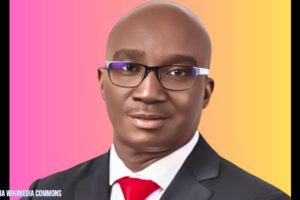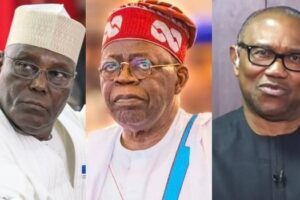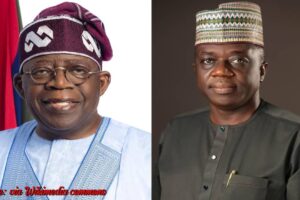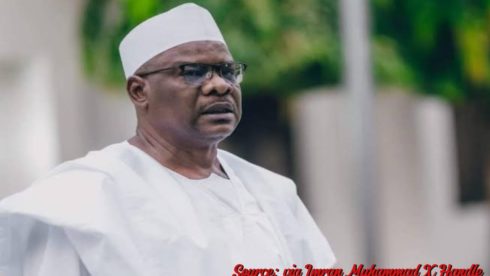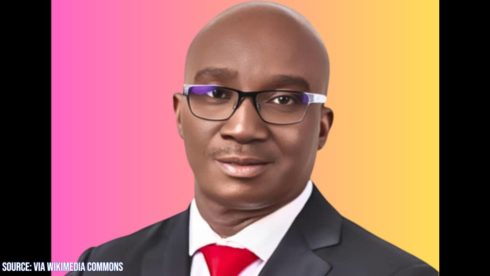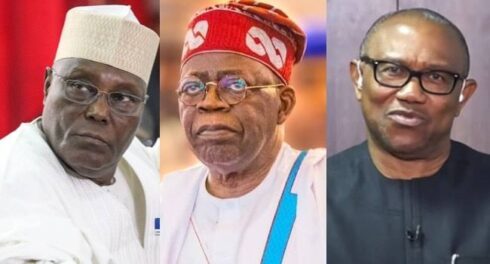Senator Ali Ndume, a prominent political figure in Nigeria, has voiced his concerns over the alarming level of corruption among politicians. In a recent statement, he emphasized how many individuals in political circles have grown wealthy through dubious means, raising serious ethical questions about Nigeria’s governance. Ali Ndume lamented how it is only in Nigeria that someone who was financially unstable just a week ago could suddenly afford extravagant lifestyles, such as purchasing fleets of cars and even private jets.
He further explained that such corrupt practices are celebrated rather than condemned. Families and communities rejoice over the newfound wealth of their members without questioning its source, a reflection of the deeply ingrained culture of impunity. According to Ali Ndume, this is symptomatic of a larger societal issue where financial success, no matter how ill-gotten, is prioritized over integrity and accountability.
Lack of Effective Anti-Corruption Laws in Nigeria
Ali Ndume pointed out that Nigeria currently lacks strong legislation to proactively or reactively address corruption. Despite the glaring evidence of corrupt practices among government officials and politicians, there is no comprehensive legal framework in place to curb the issue. According to Ali Ndume, the absence of such laws enables a culture of impunity, where stolen public funds are neither questioned nor retrieved.
He specifically highlighted the lack of an “Unexplained Wealth Act” in Nigeria, a law that would require individuals to account for their sudden and unexplained riches. The Senator also noted the absence of any Executive Order to tackle this issue, which only exacerbates the corruption problem. He called for urgent legislative reforms to establish stricter anti-corruption measures to bring more accountability to Nigeria’s political system.
Ali Ndume – Corruption: A Major Obstacle to Nigeria’s Development
According to Ali Ndume, corruption remains Nigeria’s most significant obstacle to progress. The unchecked embezzlement of public funds hinders the country’s ability to address critical issues such as infrastructure development, poverty alleviation, and education. Corruption siphons off resources that could otherwise be used for the common good, thereby slowing down Nigeria’s development and entrenching social inequality.
Ali Ndume argued that without tackling corruption head-on, efforts to transform Nigeria into a prosperous nation would remain futile. The Senator underscored the need for political will at the highest levels of government to implement lasting reforms and ensure that corrupt individuals are held accountable for their actions.
Celebration of Corruption: A Societal Issue
In his remarks, Ali Ndume expressed concern over the societal acceptance and celebration of corrupt politicians in Nigeria. He lamented how, despite widespread knowledge of the corrupt practices of some individuals, they are still treated with respect and even revered in their communities. He pointed out how people often lobby and pay homage to these corrupt individuals, further normalizing their actions.
This culture, according to Ali Ndume, makes it even more difficult to address corruption. As long as corrupt politicians continue to be celebrated, there will be little incentive for them to change their ways. Ali Ndume called for a societal shift in how success is perceived, advocating for integrity and accountability to be valued above material wealth.
Nigeria’s Untapped Agricultural Potential Amid Corruption
Senator Ali Ndume also highlighted how corruption has diverted attention from Nigeria’s vast agricultural potential. He noted that despite the country’s rich, arable land, less than five percent of it has been cultivated. The Senator emphasized that the government’s failure to invest in agriculture and rural development is partly due to corrupt practices, which divert resources away from productive sectors.
Ali Ndume argued that Nigeria could easily address its food security issues if resources were directed toward agricultural development. However, corruption continues to impede these efforts, keeping the country dependent on food imports and perpetuating widespread hunger.
The Urgent Need for Legislative Reform
Ali Ndume stressed the urgent need for legislative reforms to address corruption in Nigeria. He advocated for the enactment of an “Unexplained Wealth Act” and other anti-corruption laws that would require politicians and public officials to justify their sudden affluence. He also called for stronger enforcement mechanisms to ensure that corrupt individuals face consequences for their actions.
Ali Ndume’s remarks come at a time when Nigerians are increasingly frustrated with the state of governance and the lack of accountability in public office. His call for reforms could serve as a wake-up call for the political elite to prioritize the nation’s long-term interests over personal gain.
Table of Contents
Discover more from OGM News NG
Subscribe to get the latest posts sent to your email.

